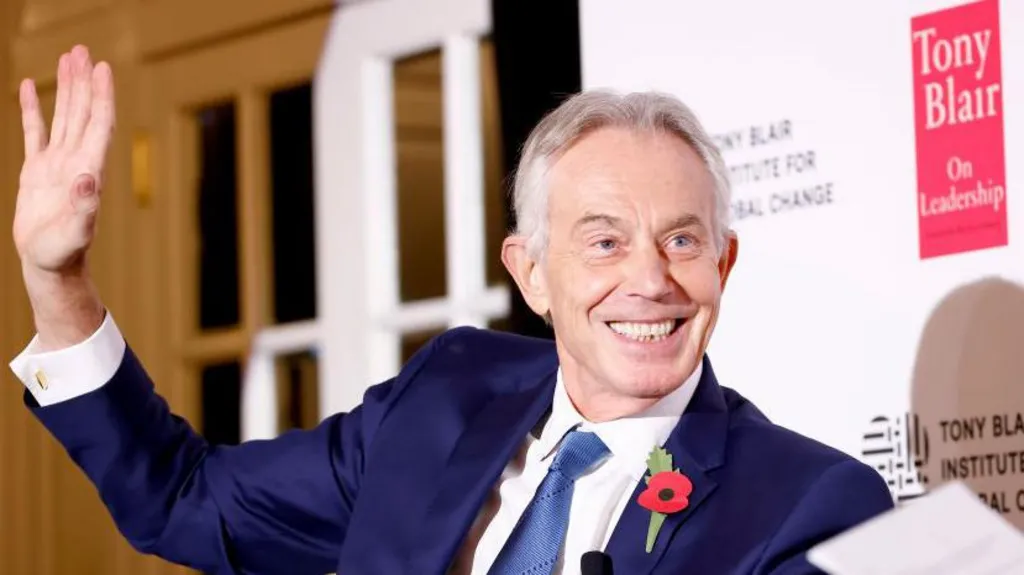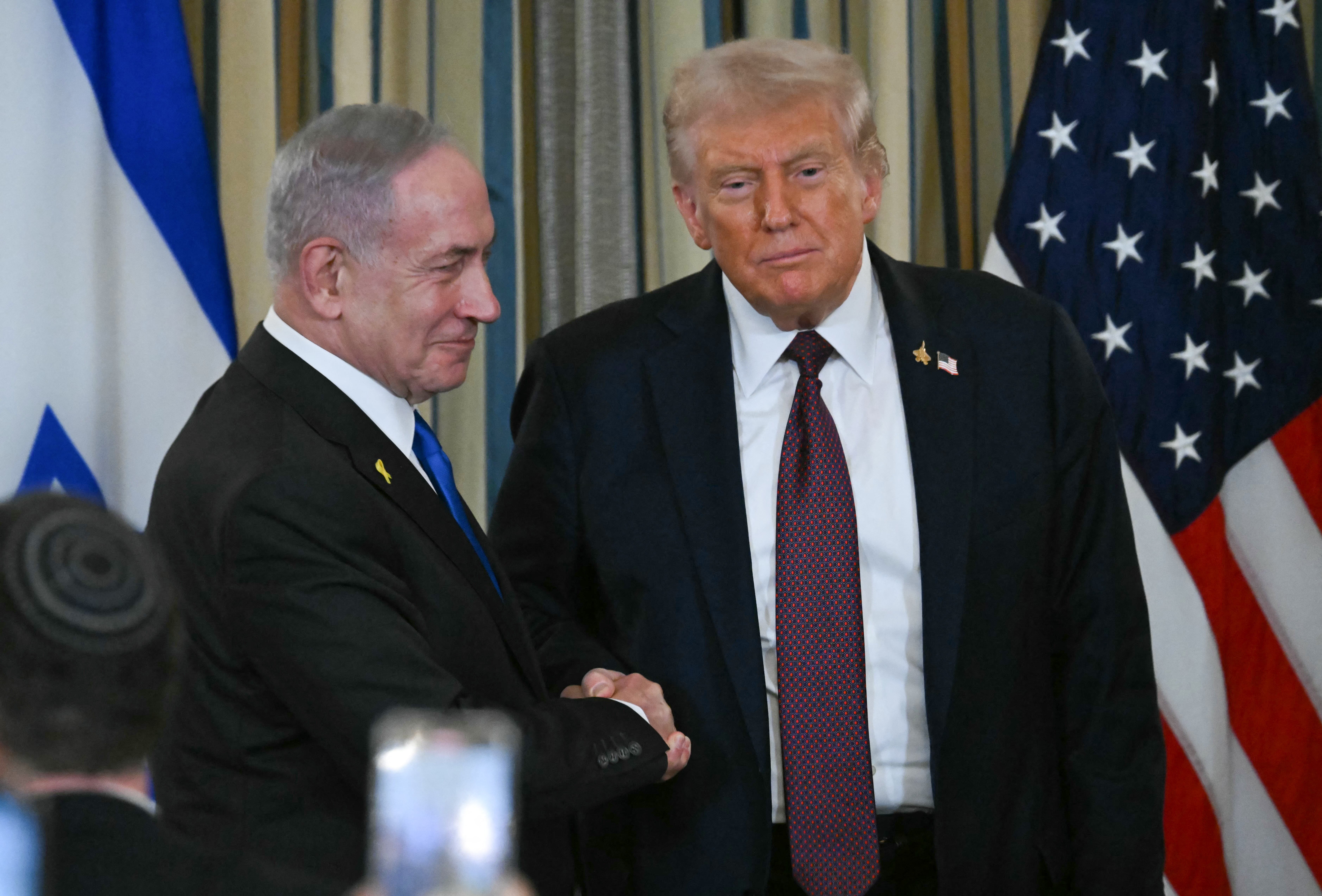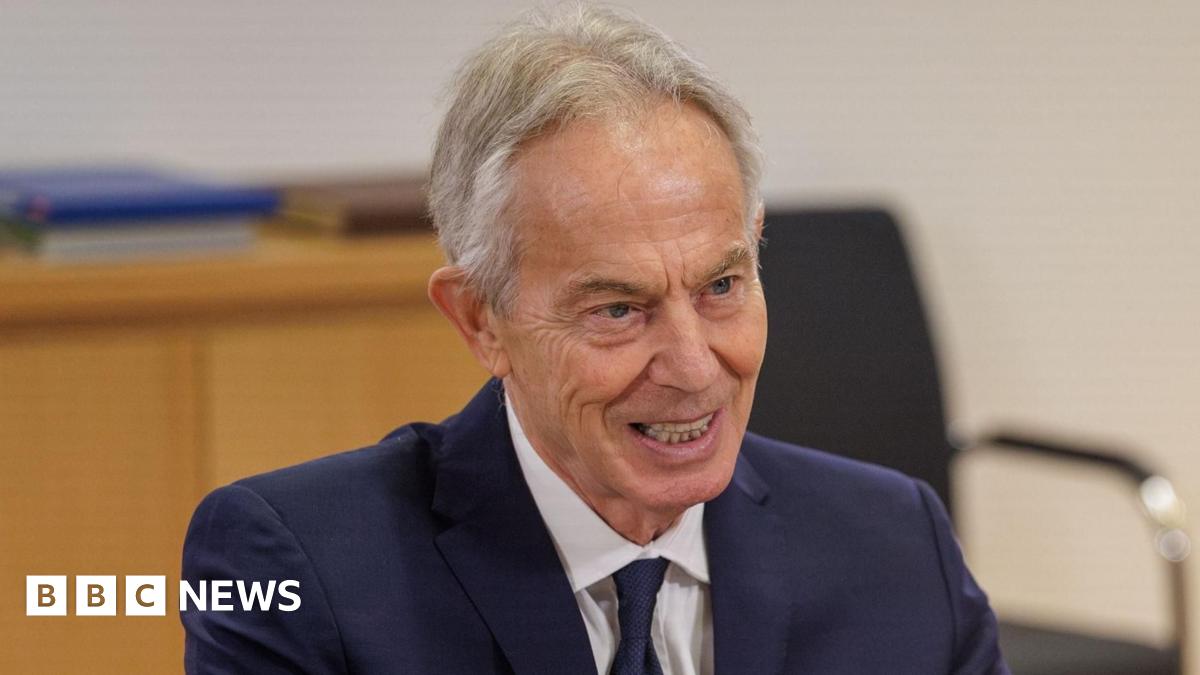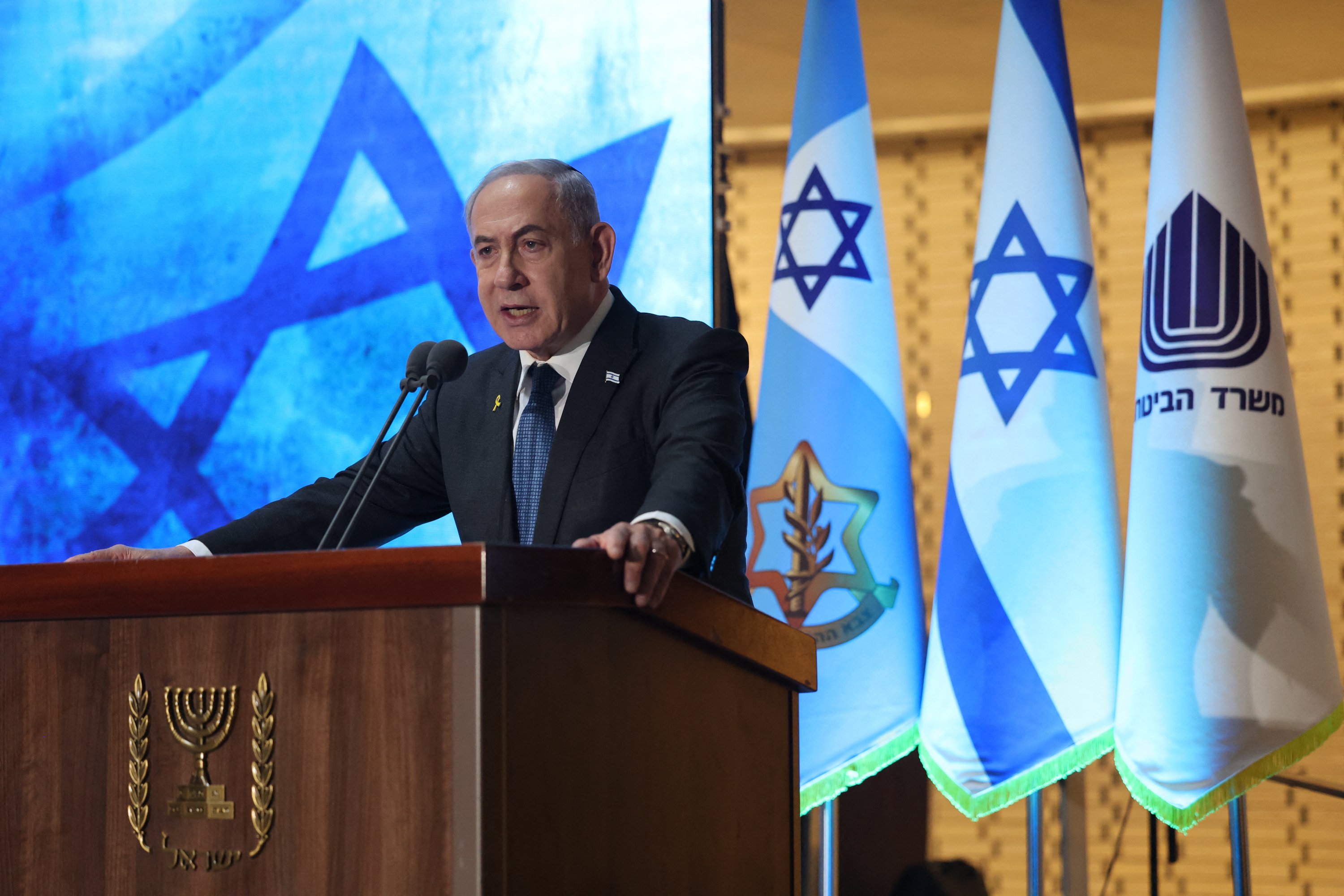BBC: Trump trusts Blair, others don't - can he govern Gaza?
NEWS Express newspaper
with the BBC – As prime minister of the United Kingdom for more than 10 years, Sir Tony Blair was a master of political compromise.
He was seen as a skillful negotiator of the center, triangulating his way out of the rut of traditional left-right politics, GazetaExpress reports.
But if there were peace in Gaza and he were called upon to help govern what was left, would Teflon Tony – as he was once known – also have the political wiles to keep all sides happy and the guns silent?
Its intended role is still unclear. Donald Trump's 20-point peace plan envisions a transitional international body that would oversee the governance of post-war Gaza.
The US president would chair this so-called “Peace Board” and Sir Tony, 72, would be a member. He is a “good man, a very good man,” Trump told reporters.
Sir Tony's presence on this hypothetical body would not be a surprise.
The former prime minister has been closely involved in drafting peace proposals for Gaza for months. He has worked with Jared Kushner, Trump's son-in-law, and Ron Dermer, a key adviser to Israeli Prime Minister Benjamin Netanyahu.
In August, Sir Tony attended a high-level meeting with Trump at the White House to discuss a strategy after the war in the Gaza Strip.
A month ago he also held talks with Steve Witkoff, the president's chief envoy, at the White House.
In a statement, Sir Tony unsurprisingly praised Trump's plan, describing it as "bold and intelligent" and "the best chance to end two years of war, misery and suffering."
He said the proposals created the opportunity not only "for Israelis and Palestinians to find a path to peace," but also "a broader regional and global alliance to counter the forces of extremism and promote peace and prosperity among nations."
And that's the key point: this is what Sir Tony has been pushing for decades in various roles.
As prime minister since 1997, he supported the Clinton administration's efforts to find peace in the region.
On the very day he left office in June 2007, he was appointed special envoy to the so-called Quartet – representing the US, Russia, the EU and the UN – designed to coordinate peace efforts, a role he held until 2015.
Since then, his business and other interests – including his Tony Blair Institute for Global Change – have kept him firmly connected to the region.
Diplomats say this is what makes Sir Tony unique; he enjoys the trust of the Trump administration, he has an unparalleled network in the Middle East and has long experience in dealing with the Israeli and Palestinian leaderships.
Nick Hopton, director general of the Middle East Association, said the former UK prime minister was the only Western leader he could imagine taking on the role. “He has the credibility and experience having been involved in the Middle East for 24 years,” he said.
"But this will only work if he is able to have the trust of Donald Trump and also if he is not seen as being manipulated by Benjamin Netanyahu. He also needs to show that he has the trust of the Palestinian Authority leadership."
But – and it's a big "but" – Sir Tony would come into this role with a lot of baggage.
For some he is a divisive figure, for others even worse.
Role in Iraq invasion 'not forgotten'
His role in joining the 2003 invasion of Iraq – based on inaccurate reports about the country's weapons of mass destruction – still tarnishes his reputation in the region and has led some to accuse him of war crimes.
Francesca Albanese, the UN special rapporteur on rights in the occupied Palestinian territories, was blunt. “Tony Blair? No. Hands off Palestine,” she posted on social media. “Shall we meet in The Hague perhaps?” a reference to the location of the International Criminal Court.
Sir Simon Fraser, the former head of the UK Foreign Office, said Sir Tony had shown a genuine interest in the Palestinian cause and was trusted in Washington, Israel and the Gulf. “But the Arab path has not forgotten Iraq,” he said.
“The future oversight of Gaza needs a broader base and cannot look like an American/British undertaking.”
Hamas, for example, did not seem eager. Husam Badran, a member of the group's politburo, said this week that Sir Tony should be tried for the US invasion of Iraq, not for his administration of Gaza. "Any plan linked to Blair is a bad omen," he said.
Some Palestinians and others also see Sir Tony as historically always too close to Israeli and American positions. Nomi Bar-Yaacov, a former international peace negotiator, said: “I don’t think the Palestinians trust him at all. I think they see him as a colossal failure during his time as Quartet envoy.”
Even UK Prime Minister Sir Keir Starmer, who used his speech at the Labour Party conference on Tuesday to praise Trump's peace plan, chose not to mention the key role his predecessor could play.
As a Middle East peace envoy for eight long years, Sir Tony was supposed to help build the Palestinian Authority so that it would one day be in a position to run a Palestinian state. But few would argue that this is where the Palestinian Authority is today.
Palestinians also argue that he did not do enough to oppose illegal settlements and settler violence. Some have claimed that he should have made a stronger case for Palestinian statehood, focusing instead on economic development.
The interesting question is why Sir Tony still feels the need to get involved in efforts to end the fighting in the Middle East. He has long seen himself as a peacemaker, following his success in negotiating the Good Friday Agreement that helped reduce the conflict in Northern Ireland.
But as a political correspondent during the 1990s and 2000s, and thus a close observer of Blair's years in power, I was always struck by his steadfast refusal to accept that he might have failed to persuade anyone of his point of view. It bothered him. To this extent, the Middle East may be seen by Sir Tony as unfinished business.
Health Secretary Wes Streeting told PA Media that Sir Tony's role would be "shocking" given the Iraq war and said he had a "tremendous legacy" in Northern Ireland of building lasting peace. "If he can use that skill in the Israeli-Palestinian conflict, with the support of the Israelis, the Palestinians and other regional powers, then so much the better," Mr Streeting said.
In reality, Blair’s role is a secondary issue. He will have a job to do only if this peace plan succeeds and survives, and there is no guarantee of that. Far more important are the differences between the two sides and the details that have yet to be resolved by the framework set out by the White House. Sanam Vakil, director of the Middle East programme at the think tank Chatham House, said: “The focus on Tony Blair and his legacy of Western intervention in Iraq masks the real challenges of this peace framework that lacks detail, timelines and deliverables – and still lacks Palestinian or Israeli support, let alone leadership.
“Without significant work to move beyond 20 points on a piece of paper, this plan will be another version of cosmetic diplomacy that entrenches structural injustice and deprives Palestinians of agency and sovereignty.”
So perhaps what really matters is not the psychodrama of Sir Tony Blair and the controversial opinions people have about him. A more important question may be what role any transitional authority in Gaza could play and whether Sir Tony has the skills and experience to play a significant role.
If his job were to coordinate with Gulf leaders and the White House, that’s one thing. But if he were to be asked to effectively govern Gaza, overseeing the Strip’s reconstruction, security, and economic development, that’s another. “Viceroy Blair?” a diplomat texted me. “This will never wash.”
[SRC] https://www.gazetaexpress.com/en/bbc-trump-trusts-blair-others-not-can-he-govern-gas/
 Visit the website
Visit the website






